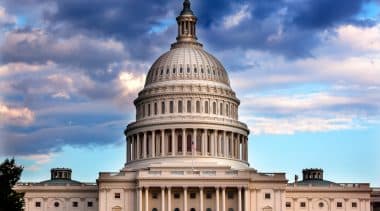Spence Purnell
-
Marijuana Taxation and Black Market Crowd-Out
Tax rates that elevate the price of legal marijuana significantly above black market prices prolong the presence of illegal markets and reduce government tax receipts.
-
How Cities Often Overstate the Economic Impact of Events and Facilities
Visit Sarasota estimates the World Rowing Championship generated $22 million in economic impact, while the official body of the championships calculated an impact of $7 million.
-
Consideration of XBRL and Structured Disclosures by Municipal Issuers
The Municipal Securities Rulemaking Board should accept and display Inline XBRL disclosures.
-
Missouri and Kansas End Economic Border War
Missouri and Kansas reach deal to stop using subsidies and tax incentives to get businesses to move across state lines.
-
24th Annual Highway Report
North Dakota, Virginia and Missouri have the best performing, most cost-efficient state highway systems, while New Jersey, Rhode Island and Hawaii have the worst.
-
It Is Time to Stop Drug Testing Parolees and Probationers for Marijuana
Drug testing for marijuana does not serve public safety, imposes economic costs, and unnecessarily restricts civil liberties.
-
Capitalization Requirements for Marijuana Businesses Are Unjust and Counterproductive
States with legalized marijuana should let business owners experiment with all different kinds of models and let the market decide which ones are worthy of surviving.
-
Why States With Legalized Marijuana Should Allow Marijuana Lounges
There is an increasing need and consumer demand for lounges where marijuana products can be consumed.
-
Marijuana Delivery: Addressing Concerns and Public Policy Issues
There is little reason to suggest that any of the social and economic costs potentially associated with legalization are exacerbated to any extent by allowing delivery services.
-
A Common Sense Approach to Marijuana Therapy
Individuals and their doctors should be making appropriate marijuana therapy determinations.
-
Market Size Estimates For Legalized Marijuana
Estimates for the potential size of a new legal marijuana market are often riddled with uncertainty and inaccuracy, and can also be skewed by tenuous assumptions.
-
Florida Needs to Take Back Control, Approve More Cell Phone Providers for Lifeline Program
Outsourcing the approval process to the federal government has been a failure.
-
State and Local Governments Should Mimic the Open, Public, Electronic, and Necessary (OPEN) Government Data Act
The new law requires federal agencies to publish data online in machine-readable data formats.
-
Medical Marijuana Patients Are Being Denied Gun Rights
The absurdity of ATF's rules denying medical cannabis card holders the right to purchase guns, and what states can do about it.
-
Don’t Let CalPERS’ CEO Scandal Divert Attention From the System’s Accomplishments
The largest pension fund in the country is facing a scandal over apparently false claims its CEO made on her employment application.
-
Worries About Deficits Go Out the Window
Politicians have stopped talking about the federal government's fiscal predicament even though it is getting worse under the Trump administration and Republican Congress.
-
Does Marijuana Legalization Increase Traffic Accidents?
Studies looking at the prevalence of drivers impaired by THC are prone to overestimate crash risk because of other risk factors.
-
Do Capitalization Requirements Make Sense For The Cannabis Industry?
Small business owners without lots of capital deserve the opportunity to enter the industry without burdensome requirements that do not fulfill their intended purpose.

















